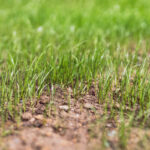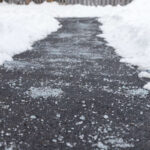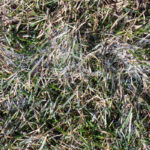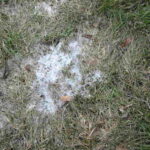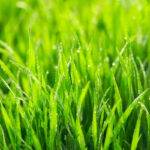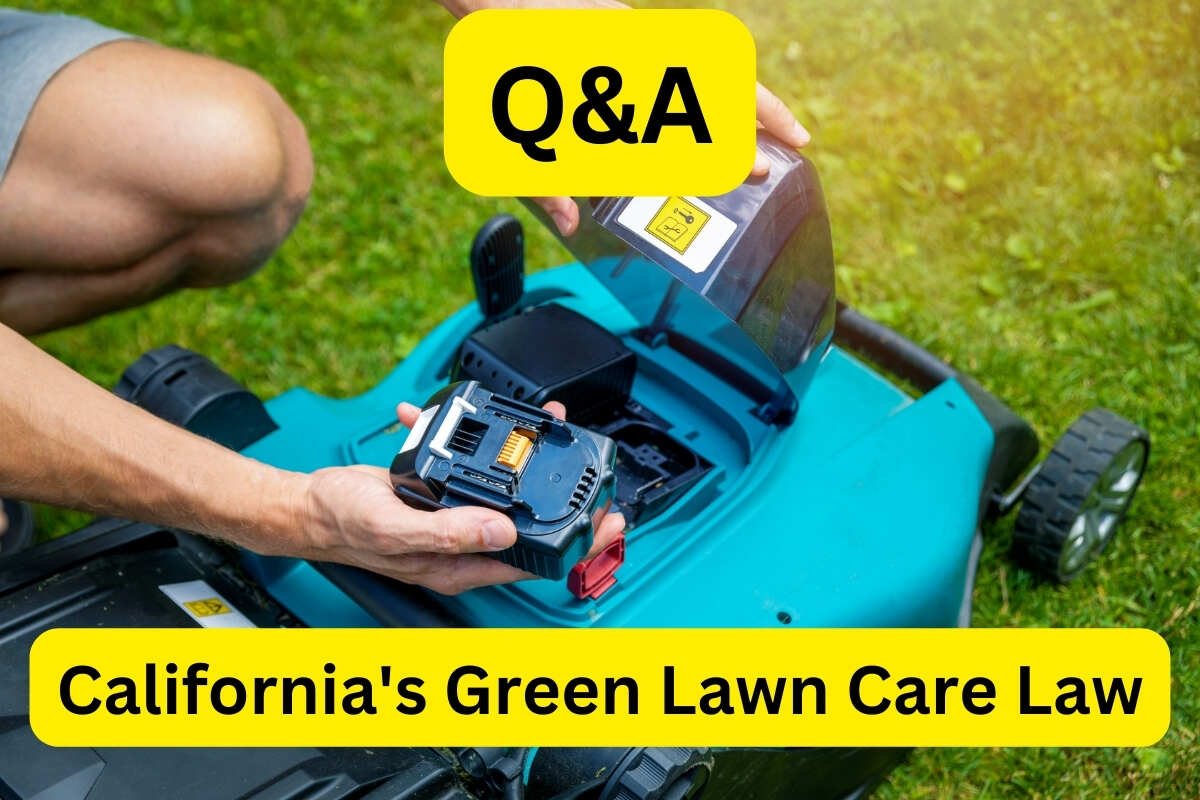
California’s Green Lawn Care Law now bans the sale of new gas-powered lawn care equipment. The legislation, which took effect Jan. 1, 2024, covers gas-powered string trimmers, lawn mowers, leaf blowers manufactured after Dec. 31, 2023.
Motivated by a pressing need to reduce air pollution in the state with the worst air quality nationwide, Assembly Bill 1346 (AB 1346) raises deep concerns and controversy among lawn owners and landscaping professionals.
Here are the most common questions people ask about this law.
- 1. What Does California’s Green Lawn Care Law Cover?
- 2. Which Gas-Powered Equipment Is Exempt From the New Regulations?
- 3. When Does the Law Banning Gas-Powered Equipment Take Effect?
- 4. Will You Still Be Able to Buy a Used Gas-Powered Lawn Mower?
- 5. Can You Continue Using the Gas-Powered Lawn Mower You Own?
- 6. Why Did California Ban Gas-Powered Lawn Care Equipment?
- 7. Will the Golden State Offer Incentives to Purchase Eco-Friendly Lawn Care Equipment?
- 8. How Much Does Electric and Battery-Powered Lawn Equipment Cost?
- 9. Is Electric Equipment as Good as Gas-Powered Models?
- 10. Will the Legislation Increase Lawn Care and Landscaping Prices?
- 11. What Are the Best Electric Mowers to Choose This Year?
- 12. What Is the Best Electric Leaf Blower for 2024?
- 13. What Electric String Trimmer Should You Buy in 2024?
- 14. Do Other States Ban or Consider Banning Gas-Powered Yard Equipment?
- Find a Lawn Care Pro Near You
1. What Does California’s Green Lawn Care Law Cover?
California’s green lawn care law covers all lawn care and gardening equipment manufactured after Dec. 31, 2023, that uses small off-road engines (SOREs) – spark-ignition engines powered by gasoline rated or at below 25 hp (19kW). The list includes:
- Lawn mowers
- Riding mowers
- String trimmers
- Edgers
- Hedge trimmers
- Leaf blowers
- Log splitters
- Chainsaws < 45 cc
The AB 1436 law is implemented in two phases:
- Phase one took effect on Jan. 1, 2024, and sets zero-emission standards for outdoor equipment except generators and large pressure washers.
- Phase two will take effect in 2028 and includes generators and large washers.
2. Which Gas-Powered Equipment Is Exempt From the New Regulations?
According to CARB, the new SORE regulations don’t cover:
- Diesel-powered equipment (generators, pressure washers, pumps, riding mowers)
- Stationary equipment
- Gardening equipment with large spark-ignition engines.
3. When Does the Law Banning Gas-Powered Equipment Take Effect?
The law took effect in California on January 1, 2024. Shops will still be able to sell products already in their inventory, but they will not be able to sell new gasoline-powered lawn care tools manufactured later than December 31, 2023.
4. Will You Still Be Able to Buy a Used Gas-Powered Lawn Mower?
Yes, at least for a while. The law prohibits new gas-powered lawn care equipment sales but doesn’t affect the secondary resale market. However, since it forbids the sale of new equipment manufactured after Dec. 31, 2023, the sales of used lawn care equipment is expected to drop significantly.
5. Can You Continue Using the Gas-Powered Lawn Mower You Own?
Yes, you can. The California Green Lawn Care Law applies only to sales and doesn’t limit the use of gas-powered equipment by homeowners or landscaping professionals.
6. Why Did California Ban Gas-Powered Lawn Care Equipment?
California ranks high among the most air-polluted states in the U.S. The Green Lawn Care Law addresses the urgent need to improve air quality and protect citizens’ health from dangerous emissions like nitrogen oxides (NOx) and volatile organic compounds (VOCs).
Small off-road engines pollute as much as a light-duty car and are responsible for 5% of the air pollution in the U.S. For example, a SORE-powered lawn mower generates similar smog-forming emissions in a single hour of use as a car traveling 300 miles. Leaf blowers are worse, matching the pollutant emissions of a 1,100-mile car drive.
CARB (California Air Resources Board) estimates that 15,4 million SOREs are currently used in California’s residential and commercial sectors. Reducing this number is expected to lower the emission of cancer-causing volatile organic compounds and lung-damaging particle matter by about 72 tons/day.
Besides chemical pollution, gas-powered lawn mowers and string trimmers (and especially leaf blowers) are also very loud and known to cause hearing damage with prolonged exposure. Heavy-duty models often generate over 85dB (similar to a loud concert).
7. Will the Golden State Offer Incentives to Purchase Eco-Friendly Lawn Care Equipment?
California Senate Bill 170 made $27 million available through the CORE program to help lawn care and landscaping professionals make the transition to electric equipment easier.
The program launched in November 2022 and offered point-of-sell discount vouchers ranging from $300 to $1200 per tool. By early October 2023, funds had already been exhausted, and the program was closed.
However, other programs and financial opportunities are still in place to support the acquisition of electric equipment at national, county, and local levels. All you have to do is to find one that applies to your location and needs. Here are a few examples:
- The Inflation Reduction Act can help you get up to a 30% tax credit but at most $7,500 per lawn mower. The act generally refers to clean commercial vehicles, but landscaping professionals can use it to buy commercial-grade equipment like mowers with batteries over 7kWh.
- The Promoting Reduction of Emissions Through Landscaping Equipment Act directly supports the lawn care and landscaping industry. It offers landscaping companies a 40% tax credit for purchasing zero-emission equipment such as mowers, leaf blowers, hedgers, and accessories. Professionals can get up to $25,000 a year with a total limit of $100,000 for 10 consecutive years. The act covers equipment produced after January 1, 2023.
- Local Incentives Programs. Many counties and cities have their own rebates and incentive programs. For example, the Antelope Valley Air Quality Management District offers incentives of $125 for buying zero-emission hand-held tools and $225 for lawn mowers if the residents turn in a gas-powered equivalent. Check the CARB website to see if your local air district has a program rolling right now.
8. How Much Does Electric and Battery-Powered Lawn Equipment Cost?
Corded and battery-powered lawn care equipment is typically more expensive than gas-powered for the same level of performance. On the other hand, electric tools have lower maintenance costs and can save money in the long term.
9. Is Electric Equipment as Good as Gas-Powered Models?
Not yet. Electric lawn care and landscaping tools are pretty good and getting better, but they still struggle to match the gas-powered performance. They are generally less powerful, battery-powered models have short usage times and require frequent recharge or spare batteries, and overall, they don’t perform as well. While lawn owners might not feel these differences too strongly, the change can significantly decrease productivity for professionals.
10. Will the Legislation Increase Lawn Care and Landscaping Prices?
This is a real possibility. Choosing electric equipment over gas-powered options means a higher upfront investment for lawn care companies and professionals. Remember, they can’t compromise power and performance, so they’ll need top-of-the-line pieces to maintain service quality.
Since most jobs require the freedom of movement battery-powered tools offer, lawn care pros also will need to buy lots of spare batteries to carry around while caring for your lawn.
In some cases, electric mowers or leaf blowers can do the job slower than gas-powered ones, leading to fewer clients served daily. All these can increase operating costs while reducing productivity and might be visible in the lawn care price list.
11. What Are the Best Electric Mowers to Choose This Year?
Manufacturers have plenty of good-quality electric mowers to consider as replacements for gas-powered models.
- Snapper XD 82-Volt MAX is one of them, with 90 minutes of use with a 30-minute charging time.
- The EGO Power+ LM2000-S is a lighter model, easier to push on large lawns. If you’re looking for a corded option good for small and medium home lawns,
- BLACK+DECKER’s MM2000 is a promising starting point.
12. What Is the Best Electric Leaf Blower for 2024?
Among the best electric leaf blowers on the market, you’ll find the Ego Power+ LB7654 cordless model with 756CFM, the Worx WG521, a corded option with a 12 amp motor, and the Husqvarna Leaf Blaster 350iB, a heavy-duty piece for lawns surrounded by lots of foliage and professional jobs.
13. What Electric String Trimmer Should You Buy in 2024?
Electric string trimmers are easy to use and ideal for homeowners who prefer DIY lawn care. Here are two models you can rely on in 2024 for your eco-friendly yard work: the BLACK+DECKER BESTA510, an affordable combo trimmer and edger for residential use, and the Earthwise LST02010 20V, a superlight trimmer weighing less than 5 pounds.
14. Do Other States Ban or Consider Banning Gas-Powered Yard Equipment?
Other states, counties, and cities have implemented or plan to enforce similar gas lawn equipment bans. Denver, Colorado, Minnesota, Maryland County, Connecticut City, Denver, and Toronto are on this list.
On the other hand, states like Texas and Georgia signed bills prohibiting local governments from banning gas-powered outdoor equipment.
Also worth noting: Home Depot expects more than 85% of its lawn care equipment sales will run on rechargeable batteries by the end of fiscal year 2028. This applies specifically to lawn mowers and handheld outdoor equipment like leaf blowers and trimmers, will run on rechargeable battery technology instead of gas.
Home Depot says his transition will reduce over 2,000,000 metric tons of greenhouse gasses annually from exhaust pipes of residential lawn equipment.
Find a Lawn Care Pro Near You
The law changes, tools evolve, but good-quality lawn care stays the same (minus the nasty air pollution). Don’t forget to monitor this season’s common turf pests and grass diseases and ensure regular mowing and fertilization for your beautiful turf! LawnStarter connects you to the best lawn care professionals for all these services and more!
Main Photo Credit: ronstik / Canva Pro / License
